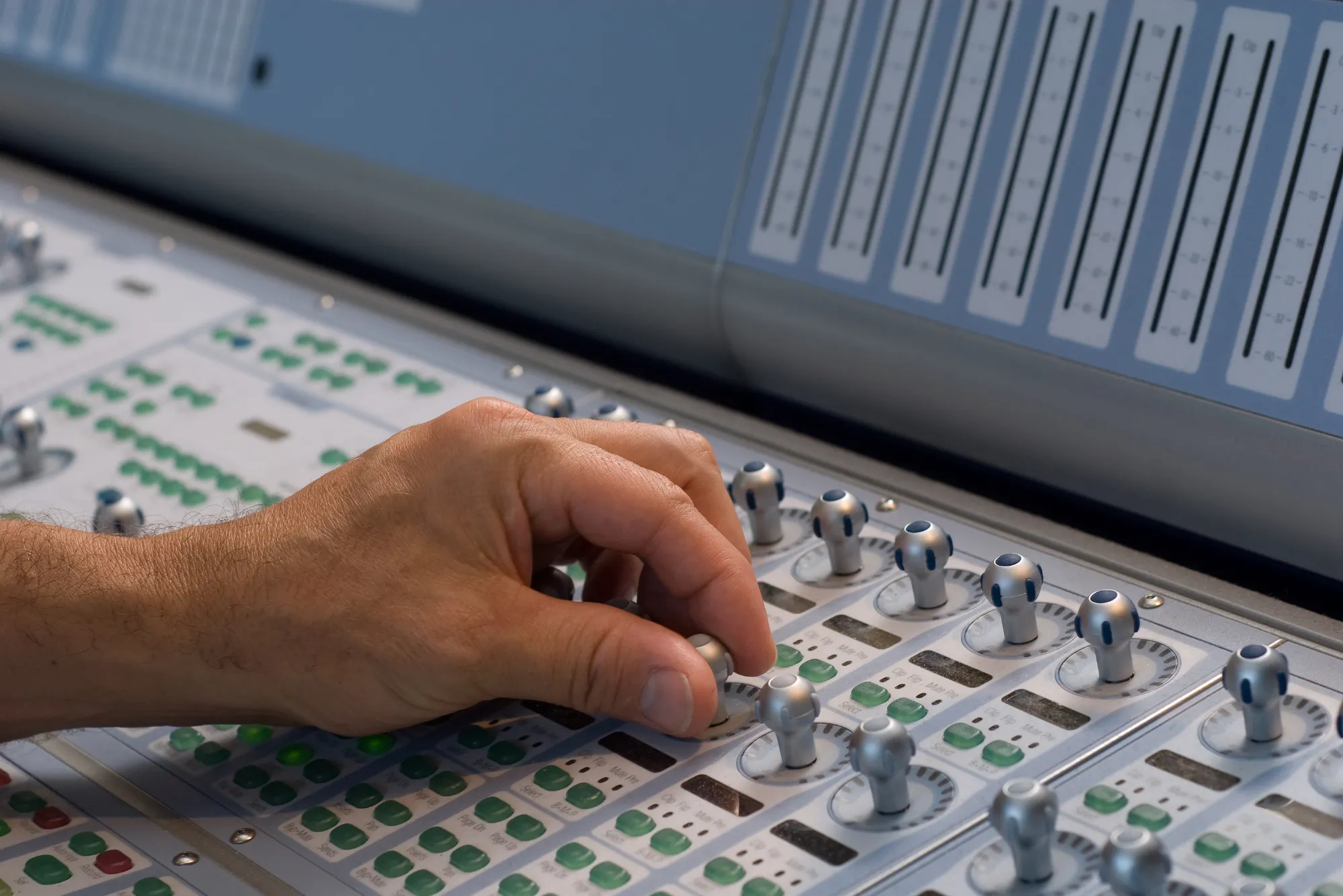Live audio mixing is an exhilarating skill that brings music, theater, and events to life. For aspiring audio professionals in Delhi, India, the vibrant cultural and entertainment scene offers a unique opportunity to dive into live sound engineering. Whether you’re aiming to work at concerts, festivals, or corporate events, mastering live sound engineering in Delhi, India requires dedication, technical knowledge, and hands-on experience. This article outlines a clear, actionable path to learning live audio mixing in Delhi, covering courses, practical training, networking, and more, tailored to the city’s dynamic environment.
Why Learn Live Audio Mixing in Delhi?
Delhi, as India’s capital, is a hub for music festivals, theater productions, and corporate events, making it an ideal place to pursue live sound engineering. The city hosts events like the NH7 Weekender, Delhi International Arts Festival, and countless corporate gigs, all requiring skilled audio professionals. Learning live sound engineering in Delhi, India allows you to tap into this thriving industry while gaining exposure to diverse audio setups, from intimate venues to large-scale outdoor stages.
The demand for skilled live sound engineers is growing, with opportunities in event management companies, music venues, and even freelance work. By learning live audio mixing, you can contribute to unforgettable audience experiences while building a rewarding career.
Step 1: Understand the Basics of Live Sound Engineering
Before diving into hands-on training, build a strong foundation in audio fundamentals. Live sound engineering involves managing audio equipment, balancing sound levels, and ensuring clarity for live performances. Key concepts include:
-
Audio Signal Flow: Understand how sound travels from microphones to mixers, processors, and speakers.
-
Mixing Consoles: Learn to operate analog and digital mixers, such as Yamaha or Soundcraft models, commonly used in Delhi’s venues.
-
Acoustics: Grasp how room size, crowd noise, and venue acoustics affect sound quality.
-
Equipment: Familiarize yourself with microphones, equalizers, compressors, and monitors.
Free online resources like YouTube tutorials (e.g., channels like Sound on Sound or Mix with the Masters) and blogs from ProSoundWeb can help you start. Books like The Sound Reinforcement Handbook by Yamaha are also excellent for beginners.
Step 2: Enroll in a Live Sound Engineering Course in Delhi
Formal education accelerates your learning and provides structured guidance. Delhi offers several institutes and workshops for live sound engineering in Delhi, India. Here are some notable options:
-
Sound Engineering Schools: Institutes like the Asian Academy of Film & Television (AAFT) in Noida and the Seamedu School of Pro-Expressionism in Delhi offer sound engineering diplomas that include live audio mixing modules. These programs cover mixing techniques, equipment handling, and real-world applications.
-
Short-Term Workshops: Organizations like the Delhi School of Music and private studios occasionally host workshops with industry professionals. Look for courses by trainers like Fali Damania, a renowned sound engineer in India.
-
Online Courses with Local Application: Platforms like Coursera, Berklee Online, or Udemy offer live sound courses. Supplement these with Delhi-based internships to apply your knowledge locally.
When choosing a course, prioritize those with hands-on training, as live sound engineering requires practical experience. Check for affiliations with brands like Shure or JBL, which often sponsor workshops in Delhi.
Step 3: Gain Hands-On Experience
Theory is essential, but live audio mixing demands real-world practice. Delhi’s event scene provides ample opportunities to get involved:
-
Volunteer at Events: Reach out to local venues like Blue Frog, Siri Fort Auditorium, or India Habitat Centre to assist with sound setup. Volunteering exposes you to professional workflows and equipment.
-
Assist Established Engineers: Connect with local sound engineers through social media platforms like LinkedIn or Instagram. Offer to shadow them at gigs to learn setup, troubleshooting, and mixing techniques.
-
Freelance Gigs: Start with small events like college fests or corporate functions. Websites like GigSalad or local event management groups on WhatsApp can help you find opportunities.
Hands-on work teaches you to handle challenges like feedback loops, stage monitoring, and crowd noise—skills critical to live sound engineering in Delhi, India.
Step 4: Build a Network in Delhi’s Audio Community
Networking is crucial in the live sound industry. Delhi’s music and event scene is tight-knit, and relationships can lead to mentorships and job opportunities. Here’s how to connect:
-
Attend Industry Events: Look for audio expos, music festivals, or seminars in Delhi, such as PALM Expo (often held in nearby Mumbai but attended by Delhi professionals). These events connect you with equipment vendors and engineers.
-
Join Online Communities: Follow Delhi-based audio groups on platforms like X or Facebook, such as “Sound Engineers India.” Engage in discussions and share your progress.
-
Collaborate with Musicians: Work with local bands or DJs to gain experience and referrals. Delhi’s indie music scene, with artists performing at venues like Depot48, is a great starting point.
Building a reputation as a reliable, eager learner will open doors in live sound engineering.
Step 5: Invest in Essential Gear and Software
While professional venues provide equipment, owning basic gear helps you practice and take on small gigs. Start with:
-
Headphones: A pair of studio-grade headphones like Audio-Technica ATH-M50x for monitoring.
-
Microphones: Affordable dynamic mics like Shure SM58 for practice setups.
-
DAW Software: Learn digital audio workstations like Ableton Live or Reaper to simulate live mixing scenarios.
Many Delhi-based engineers also use software like QLab for theater sound or SMAART for acoustic analysis. Familiarity with these tools enhances your employability.
Step 6: Stay Updated and Keep Learning
The live sound industry evolves with technology, and staying current is vital. Follow these steps:
-
Subscribe to Industry Resources: Read magazines like Sound on Sound or Mix Magazine, available online or at Delhi’s music stores.
-
Learn from Feedback: After each gig, ask for feedback from clients, musicians, or senior engineers to refine your skills.
-
Experiment with New Tech: Explore advancements like digital mixers (e.g., Yamaha QL series) or in-ear monitoring systems, which are gaining popularity in Delhi.
Challenges and Tips for Success
Learning live audio mixing in Delhi comes with challenges, such as competition and varying venue standards. Overcome them with these tips:
-
Be Patient: Mastering live mixing takes time. Focus on small, consistent improvements.
-
Adapt to Venues: Delhi’s venues range from open-air stages to cramped clubs. Learn to adjust your setup for each environment.
-
Stay Professional: Reliability and communication are as important as technical skills. Always arrive early and prepared.
Conclusion
Learning live audio mixing in Delhi is an exciting journey that combines technical expertise with creative expression. By building a strong foundation, enrolling in quality courses, gaining hands-on experience, networking, and staying updated, you can excel in live sound engineering. Delhi’s vibrant event scene offers endless opportunities to grow, from local gigs to major festivals. Start today by exploring courses, connecting with professionals, and immersing yourself in the world of live sound engineering in Delhi, India. With dedication, you’ll be shaping unforgettable audio experiences in no time.




